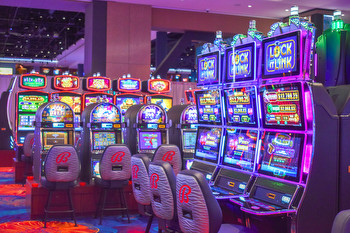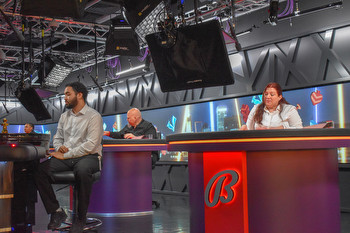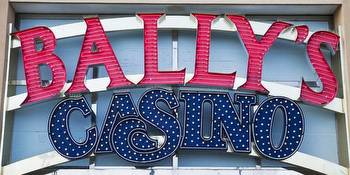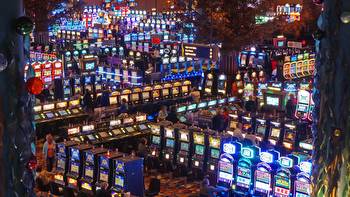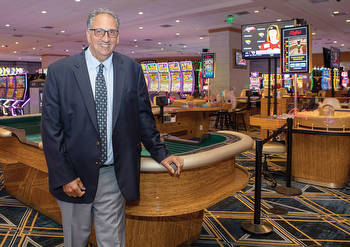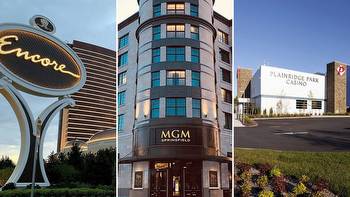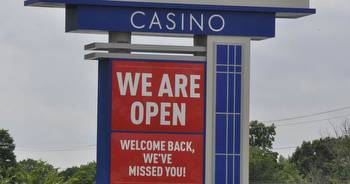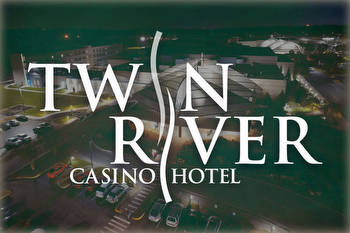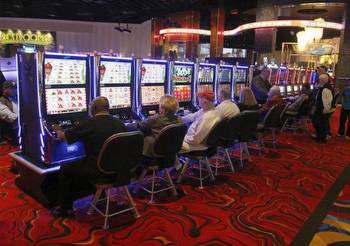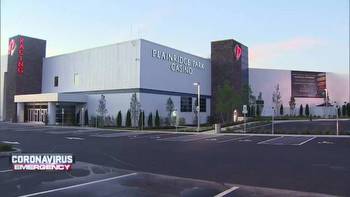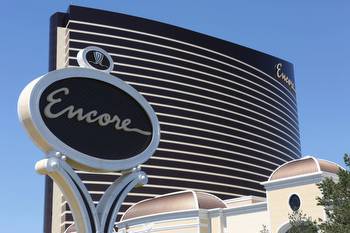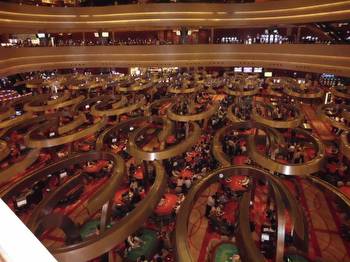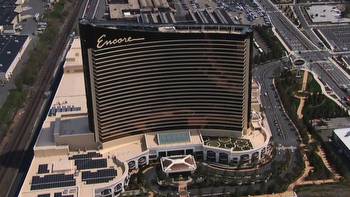Should table games be allowed at Plainridge Park Casino?

Plainridge Park Casino is facing a deliberate campaign from Rhode Island to lure Massachusetts customers to its casinos.
Given this intense competition from the likes of Twin River and Tiverton, right over our southern border, it is time to act to protect Massachusetts jobs and revenue from leaving the state. A bill now pending before the Legislature (H532), would address this threat and authorize the Gaming Commission to take action.
Our area communities have seen many positive benefits from Plainridge, and the Commonwealth has seen hundreds of millions in tax revenues to date. Many local residents are employed by the casino and it has brought businesses, including restaurants and a brand-new hotel, to the area.
We hate to see this threatened by a competing state that’s doing all it can to cannibalize our business.
When Bally’s Twin River Lincoln Casino Resort in September broke ground on an expansion that will add 40,000 square feet of new gambling space and many other amenities, Rhode Island and casino officials made clear they have to compete with Massachusetts to bolster that state’s casino industry, which combined with Lottery sales is its third largest revenue source.
Twin Rivers added table games in 2013 when Plainridge Park was applying to open its facility, and Bally’s Tiverton Casino & Hotel included them when it opened in 2018. They were clearly installed to attract customers who only have to travel a short distance to enjoy a fuller gaming experience.
Considering the change in the gambling landscape since Plainridge opened for business in 2015, the Gaming Commission should be nimble enough to recognize the revenue threat those Rhode Island casinos pose and equip Plainridge with added amenities to meet that challenge. And H532 is the vehicle to do it.
A modest addition of 30 tables at Plainridge would lead to approximately 175 new jobs for the area.
The bill is not an attempt to compete with the two existing Massachusetts casinos in Everett and Springfield and makes no effort to dictate to the commission how to address the details.
Instead, it’s a request for a modest expansion so that the Commonwealth can best compete with our neighbors to the south, protect jobs and businesses, and secure tax revenues for the Commonwealth.
NO
Richard Reid
Pastor, North Baptist Church of Brockton
Casino gambling has been legal in Massachusetts for a decade now. When the law was conceived and implemented the plan was to allow three full-scale casinos and one slots parlor. Plainridge Park won the competition to be the slots parlor and two of the three full casino licenses have been awarded and the casinos opened. The third one — the casino intended for the Southeastern region — has failed on multiple occasions to get off the ground, to the relief of those of us in Brockton who opposed locating it in our city.
Massachusetts law is intended only for the benefit of the residents here and should not be dictated or influenced by what is going on in our neighboring states. Rhode Island has made decisions to expand their table games and that is their business. We cannot allow that to be the driving factor for Massachusetts to make changes to the existing law of the Commonwealth.
All too often in this era we are witnessing the rewriting of history and the law for one reason or another. H532, a proposal on Beacon Hill to effectively redefine a Category 2 (slots parlor) casino by allowing up to 30 table games and additional slots at Plainridge, should not go forward.
As I have watched casinos begin to operate in Massachusetts, one thing I have not witnessed is clear evidence of the promised benefits to the local economies surrounding them. Over the years, I have requested clear data showing those gains and every time I receive no answer, or one that says, “It’s complicated.” That murky picture is the same when it comes to tracking the benefits of another newly legalized industry in our state — recreational marijuana.
The one thing that has been witnessed is that casino firms based outside of Massachusetts gain much while our lives here change little.
Wherever casino resorts grow, small businesses are put at risk by the competition, and the lives of many families are damaged by compulsive gambling. Another reality of gambling, legal or illegal, is the burden that is placed upon local churches and agencies to support those affected families.
There are ample opportunities for people to lose their money in Massachusetts casinos. We do not need to create new ones.
As told to Globe correspondent John Laidler. To suggest a topic, please contact laidler@globe.com.
This is not a scientific survey. Please only vote once.








